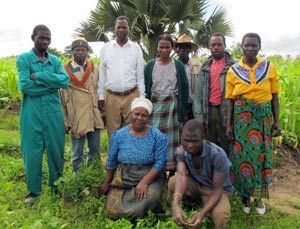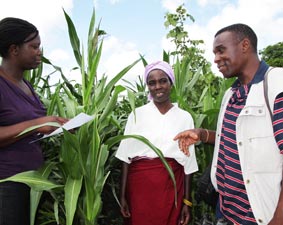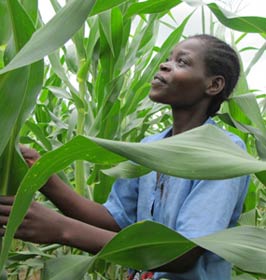SIMLESA Program Annual Report July 2013–June 2014
 This report present some of the key achievement made in the previous annual reporting period, July 2013 to June 2014. It illustrates the key results per objective, as well as aggregation of contribution from the five SIMLESA implementing countries, that is Ethiopia, Kenya, Tanzania, Malawi and Mozambique.
This report present some of the key achievement made in the previous annual reporting period, July 2013 to June 2014. It illustrates the key results per objective, as well as aggregation of contribution from the five SIMLESA implementing countries, that is Ethiopia, Kenya, Tanzania, Malawi and Mozambique.
The main activities carried out are surveys (adoption monitoring, market, partial analysis, completion of baseline and topology analysis) and marketing trainings. QAAFI continue with the preparation of journal articles for publication on households’ typology across five SIMLESA countries of operation. Objective 1 achievements and scaling out plans were discussed at Annual Review Planning Meetings (ARPM) which were held between October and December 2013 in respective countries. Mozambique and Malawi meetings were combined as a cost cutting measure as well as enhancement of partner to partner collaboration and information sharing.
The period July 2013 to June 2014, has been mainly devoted to establishment of trials, technology analysis and implementation of identified scalable technologies under objective 2 of SIMLESA program. Activities carried out during this period include proper planning for effective scaling out of SIMLESA technologies to many farmers in all 5 core countries. Selection of scalable technology was conducted based on statistical results and target farmer’s preference using participatory methodologies. Minimum tillage-maize-legume intercropping was identified as best-bet technology by farmers in most regions. Exchange visit, field days, trial evaluation, IP meeting and farmer training were conducted in all SIMLESA countries during the reporting period.
To ready full report click here






